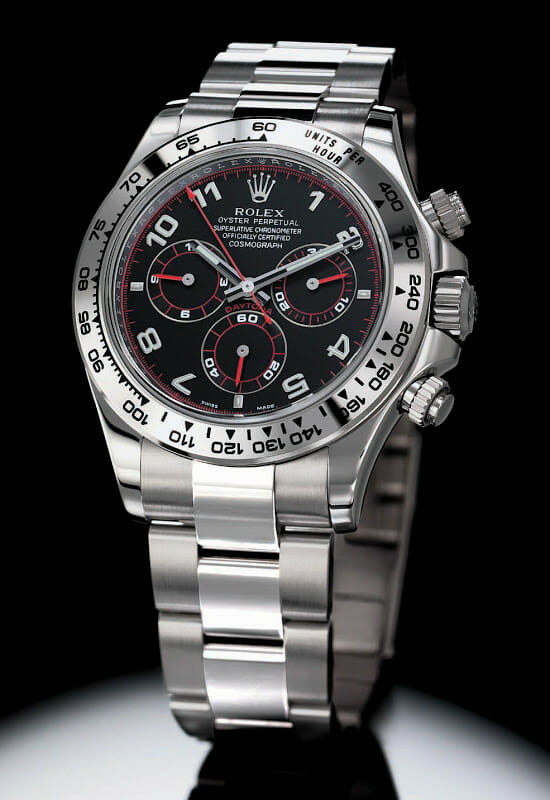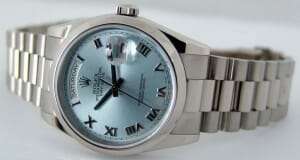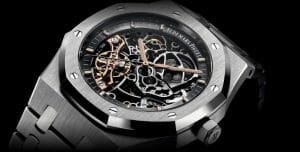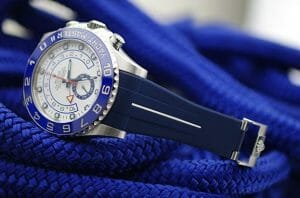When familiarizing yourself with Rolex Bracelets, you may find the it difficult to navigate the various Rolex terminology you will encounter. Words such as Perpetual, Chronometer, Jubilee, President and Oyster may have no meaning to you. A good place to get your bearings after you’ve learned the models, is to start with their bracelet options. Here is a brief explanation and history of the Rolex bracelet range:
Datejust 36mm
JUBILEE BRACELET: In 1945, the ground-breaking Rolex Datejust model carried it’s first Jubilee bracelet, named in honor of the company’s 40th anniversary. It existed only in gold for many years, and was considered the premier “dress watch” of the Rolex brand.
Daytona white gold.
OYSTER BRACELET:
Rolex sport model watches were in need of a utilitarian metal or gold bracelet. So, in 1948 the Oyster bracelet was introduced to fulfill the position, along with it’s own new Oyster clasp. Soon after, Submariner, Explorer, and Sea-Dweller models appeared with their rugged Oyster bracelets, as well as the popular GMT-Master and Daytona lines. The enduring functionality and beauty of the Oyster bracelet has spared it from any great overhaul throughout it’s sixty years of existence. Although the name implies otherwise, the Oyster bracelet should not be confused with the Oyster case.
Day-Date White Gold
PRESIDENT BRACELET:
A new watch model, the Day-Date, was introduced by Rolex in 1956, which included the brand new President Bracelet. Available only in 18 karat gold or platinum, the President bracelet replaced the Jubilee bracelet as the tip of Rolex’s uber-class pyramid. Even today, this bracelet is only offered on flagship models such as the men’s Day-Date and women’s Datejust. The heavy, interlocking links, and simple design are an obvious moniker for a Rolex novice to instantly recognize the President bracelet.





















